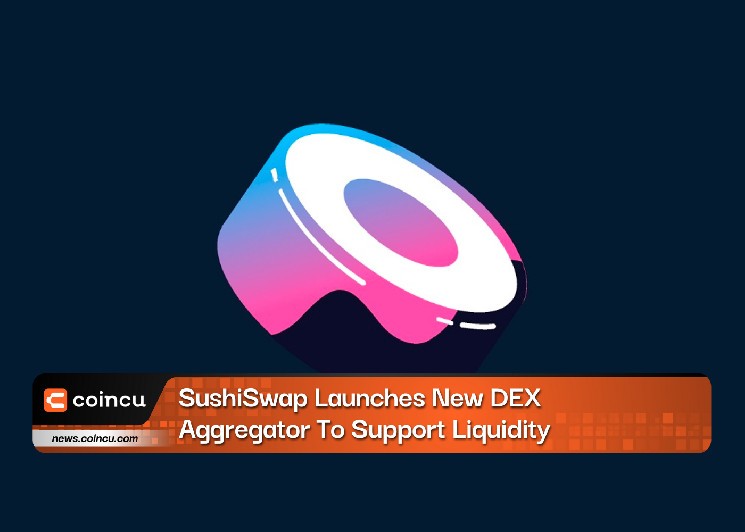SushiSwap Launches New DEX Aggregator To Support Liquidity

The DEX aggregator aims to provide users with optimal pricing while expanding the types of assets users can trade and the range of liquidity that liquidity providers (LPs) can provide, increasing the transaction fees they can earn.
Also, because the liquidity problem on most DEXs is not stable, there will be more demand for a new type of product, the DEX Aggregator. They are liquidity aggregators from various sources, such as traditional AMMs or CEXs themselves.
In a word, the DEX aggregator is a financial protocol that provides traders and investors with access to different trading pools using a single dashboard. They rely on a complex algorithm to calculate and aggregate based on many factors before choosing the best provider for a particular token swap on the available platforms.
DEX aggregator will have a mechanism to optimize the price slippage as well as transaction fees for users, making it more convenient for them to trade.
In terms of the token model, because it does not provide as much buy demand as AMMs, in addition, transaction fees will be paid in tokens of the blockchain itself (ETH, BNB, ..), so tokens of DEX aggregator will not have a sturdy stand.
Since the aggregator provides users with a new abundance of asset possibilities, it follows that it will draw even more users to the platform, which leads to greater swap fees for LPs and attracts more liquidity overall in a positive feedback cycle.
The SushiSwap aggregator’s release will help users, LPs, and the protocol as a whole. Users are now more familiar with a variety of protocols and assets. By integrating the liquidity of all DEXs and Trident pools, they may have their orders executed at optimum rates, resulting in more trading and, as a result, swap fees for LPs.
In the future, SushiSwap plans to increase access to liquidity through other DEXs and directly link with market maker flows; at the same time, this year will continue to focus on improving limit orders and overall order filling.






 Bitcoin
Bitcoin  Ethereum
Ethereum  Tether
Tether  USDC
USDC  TRON
TRON  Dogecoin
Dogecoin  Cardano
Cardano  Monero
Monero  Bitcoin Cash
Bitcoin Cash  Chainlink
Chainlink  LEO Token
LEO Token  Stellar
Stellar  Zcash
Zcash  Litecoin
Litecoin  Hedera
Hedera  Dai
Dai  Cronos
Cronos  OKB
OKB  Tether Gold
Tether Gold  Ethereum Classic
Ethereum Classic  KuCoin
KuCoin  Cosmos Hub
Cosmos Hub  Algorand
Algorand  Gate
Gate  Dash
Dash  VeChain
VeChain  Stacks
Stacks  Tezos
Tezos  TrueUSD
TrueUSD  IOTA
IOTA  Decred
Decred  Theta Network
Theta Network  Basic Attention
Basic Attention  NEO
NEO  Synthetix
Synthetix  Qtum
Qtum  Ravencoin
Ravencoin  0x Protocol
0x Protocol  DigiByte
DigiByte  Zilliqa
Zilliqa  Nano
Nano  Siacoin
Siacoin  Holo
Holo  Numeraire
Numeraire  Waves
Waves  Ontology
Ontology  Enjin Coin
Enjin Coin  Status
Status  Hive
Hive  BUSD
BUSD  Pax Dollar
Pax Dollar  Lisk
Lisk  Steem
Steem  Huobi
Huobi  OMG Network
OMG Network  Bitcoin Gold
Bitcoin Gold  NEM
NEM  Augur
Augur